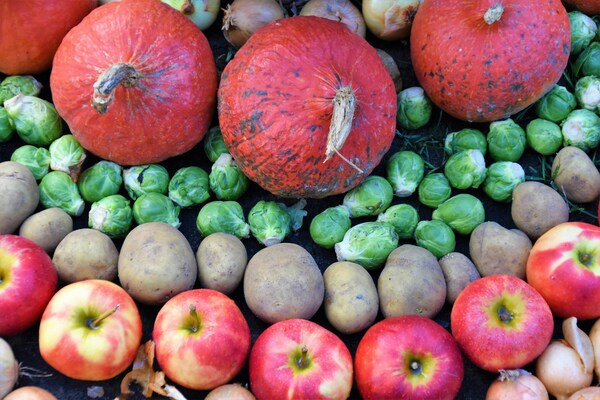Notifications
ALL BUSINESS
COMIDA
DIRECTORIES
ENTERTAINMENT
FINER THINGS
HEALTH
MARKETPLACE
MEMBER's ONLY
MONEY MATTER$
MOTIVATIONAL
NEWS & WEATHER
TECHNOLOGIA
TV NETWORKS
VIDEOS
VOTE USA 2026/2028
INVESTOR RELATIONS
COMING 2026 / 2027
ALL BUSINESS
COMIDA
DIRECTORIES
ENTERTAINMENT
FINER THINGS
HEALTH
MARKETPLACE
MEMBER's ONLY
MONEY MATTER$
MOTIVATIONAL
NEWS & WEATHER
TECHNOLOGIA
TV NETWORKS
VIDEOS
VOTE USA 2026/2028
INVESTOR RELATIONS
COMING 2026 / 2027
 meena Kulkarni -
November 8, 2024 -
Other -
agriculture
plant
organic farming
Hexaconazole 5% SC
hexaconazole 5 ec
hexaconazole bayer
hexaconazole
farming
plant growth
pesticide
-
429 views -
0 Comments -
0 Likes -
0 Reviews
meena Kulkarni -
November 8, 2024 -
Other -
agriculture
plant
organic farming
Hexaconazole 5% SC
hexaconazole 5 ec
hexaconazole bayer
hexaconazole
farming
plant growth
pesticide
-
429 views -
0 Comments -
0 Likes -
0 Reviews

Navigating the supply chain for fruit crop seeds has never been more complex or critical. This intricate web connects growers, suppliers, distributors, and consumers in a system that impacts global food security, farm productivity, and the price of our produce. As demand for high-quality fruit crop seeds grows, the supply chain faces mounting challenges, ranging from climate change to regulatory barriers. Understanding these challenges is vital for stakeholders looking to ensure consistent access to top-tier seeds and safeguard agricultural sustainability.
The global demand for fruit crops, driven by population growth and rising health awareness, is surging. Consumers want a diverse range of fruits year-round, creating immense pressure on the seed supply chain. Meeting this demand isn’t straightforward due to limitations like unpredictable yields and logistical hurdles in moving seeds across regions.
Many farmers eager to shop for fruit seeds grapple with limited availability during critical planting seasons, reducing productivity and economic strain. Addressing this imbalance requires innovative solutions and collaboration across the supply chain.
Climate change is one of the most formidable challenges facing the supply chain for fruit crop seeds. Extreme weather conditions, rising temperatures, droughts, and unpredictable rainfall disrupt seed production and quality. Seed producers may need help to grow fruit crops suited to changing conditions, leading to inconsistent seed stock and reduced yields.
Droughts in major fruit-growing regions can cause seed shortages, while excessive rain or flooding in seed production zones results in poor seed quality. Adapting seeds to changing climates requires time-consuming and resource-intensive research and development of new varieties.
Researchers are developing drought-resistant, pest-tolerant, and climate-resilient seeds to address climate challenges. These advancements provide hope but have hurdles, including high production costs, regulatory barriers, and skepticism among traditional growers. The adaptation of these seeds in mainstream farming practices is gradual, often hindered by market constraints.
“Adaptation isn’t a choice; it’s survival.”
By investing in resilient seed production and sharing knowledge across supply chains, stakeholders can better prepare for environmental challenges and maintain robust fruit crop seed availability.
Seed supply chains for fruit crops are governed by a host of regulations at the local, national, and international levels. These regulations, often intended to protect biodiversity and prevent the spread of diseases, can also become barriers. Compliance with strict import and export laws, sanitary and phytosanitary requirements, and certifications can slow down seed distribution, disrupt timelines, and raise costs for seed producers and buyers alike.
Streamlining regulatory compliance and fostering international cooperation are crucial steps to improve the efficiency and resilience of the seed supply chain.
Ensuring fruit crop seeds' genetic purity and quality is a significant concern for suppliers and growers. Cross-pollination, seed-borne diseases, and improper handling during transportation can compromise seed quality. High-quality fruit crops depend on reliable seeds, but maintaining such standards throughout the supply chain is an uphill battle.
Seeds often travel long distances through multiple hands, increasing the risk of contamination or degradation. Quality assurance measures—such as rigorous testing, certification processes, and adherence to international standards—are essential but come with added costs. Due to these financial constraints, small-scale growers may struggle to compete.
The supply chain for fruit crop seeds relies heavily on efficient logistics and transportation. Delays caused by political conflicts, trade restrictions, infrastructure problems, and pandemics can have ripple effects throughout the system. Transporting seeds often requires temperature-controlled environments, specialized packaging, and timely deliveries to maintain seed viability.
A simple delay at one point in the chain can compromise seed quality and impact growers later on. Moreover, rising transportation costs due to fuel price hikes and limited shipping capacity strain seed suppliers and buyers.
Digitization and data-driven technologies offer new opportunities to optimize seed supply chains. Real-time tracking, predictive analytics, and AI-driven forecasting allow better planning and risk management. Adopting these technologies across the supply chain can improve logistics, reduce waste, and ensure timely seed deliveries.
Access to high-quality fruit crop seeds alone is insufficient; farmers must also have the knowledge and resources to use them effectively. Training on seed varieties, optimal planting methods, and climate-smart agriculture is often lacking, particularly in rural or underserved regions. Bridging these gaps is crucial for maximizing the benefits of quality seeds and addressing food security challenges.
Training programs and extension services can empower farmers to adopt improved seeds and practices, increasing yields, incomes, and community resilience. Collaboration among seed companies, governments, NGOs, and agricultural experts can create an environment where knowledge sharing thrives.
Supply chain challenges for fruit crop seeds are complex, interconnected, and constantly evolving. While global demand, climate change, regulatory complexities, and logistical issues pose significant hurdles, solutions lie in collaboration, innovation, and resilience-building measures. By investing in resilient seeds, optimizing logistics, and equipping farmers with knowledge, the industry can build a robust supply chain that nourishes the world while adapting to its changing needs. Every seed sown is an opportunity to grow, adapt, and thrive in an uncertain future.
